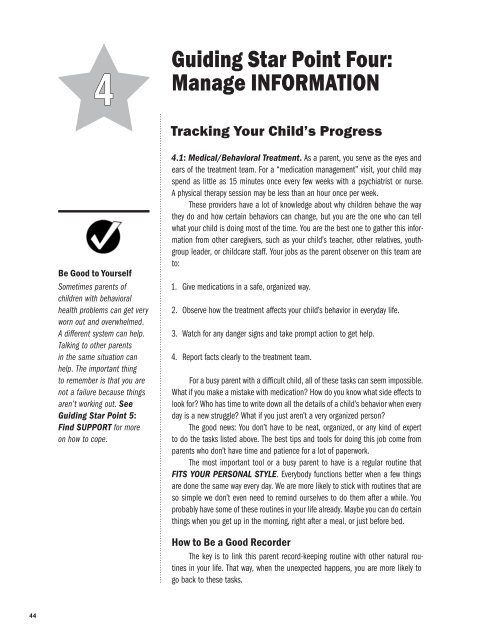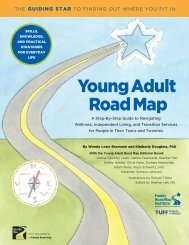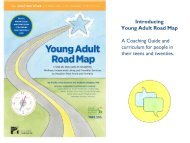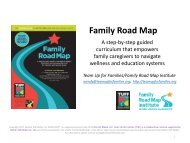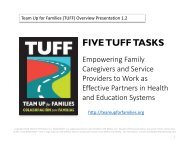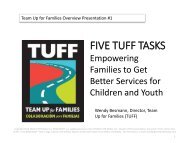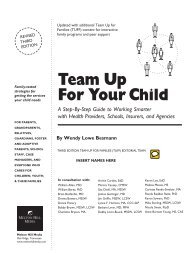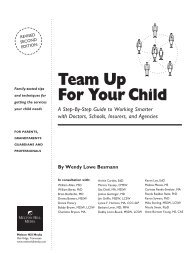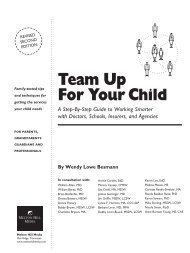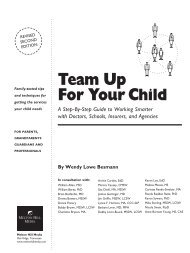Family Road Map Guide
You also want an ePaper? Increase the reach of your titles
YUMPU automatically turns print PDFs into web optimized ePapers that Google loves.
4<br />
Guiding Star Point Four:<br />
Manage INFORMATION<br />
Tracking Your Child’s Progress<br />
Be Good to Yourself<br />
Sometimes parents of<br />
children with behavioral<br />
health problems can get very<br />
worn out and overwhelmed.<br />
A different system can help.<br />
Talking to other parents<br />
in the same situation can<br />
help. The important thing<br />
to remember is that you are<br />
not a failure because things<br />
aren’t working out. See<br />
Guiding Star Point 5:<br />
Find SUPPORT for more<br />
on how to cope.<br />
4.1: Medical/Behavioral Treatment. As a parent, you serve as the eyes and<br />
ears of the treatment team. For a “medication management” visit, your child may<br />
spend as little as 15 minutes once every few weeks with a psychiatrist or nurse.<br />
A physical therapy session may be less than an hour once per week.<br />
These providers have a lot of knowledge about why children behave the way<br />
they do and how certain behaviors can change, but you are the one who can tell<br />
what your child is doing most of the time. You are the best one to gather this information<br />
from other caregivers, such as your child’s teacher, other relatives, youthgroup<br />
leader, or childcare staff. Your jobs as the parent observer on this team are<br />
to:<br />
1. Give medications in a safe, organized way.<br />
2. Observe how the treatment affects your child’s behavior in everyday life.<br />
3. Watch for any danger signs and take prompt action to get help.<br />
4. Report facts clearly to the treatment team.<br />
For a busy parent with a difficult child, all of these tasks can seem impossible.<br />
What if you make a mistake with medication? How do you know what side effects to<br />
look for? Who has time to write down all the details of a child’s behavior when every<br />
day is a new struggle? What if you just aren’t a very organized person?<br />
The good news: You don’t have to be neat, organized, or any kind of expert<br />
to do the tasks listed above. The best tips and tools for doing this job come from<br />
parents who don’t have time and patience for a lot of paperwork.<br />
The most important tool or a busy parent to have is a regular routine that<br />
FITS YOUR PERSONAL STYLE. Everybody functions better when a few things<br />
are done the same way every day. We are more likely to stick with routines that are<br />
so simple we don’t even need to remind ourselves to do them after a while. You<br />
probably have some of these routines in your life already. Maybe you can do certain<br />
things when you get up in the morning, right after a meal, or just before bed.<br />
How to Be a Good Recorder<br />
The key is to link this parent record-keeping routine with other natural routines<br />
in your life. That way, when the unexpected happens, you are more likely to<br />
go back to these tasks.<br />
44


